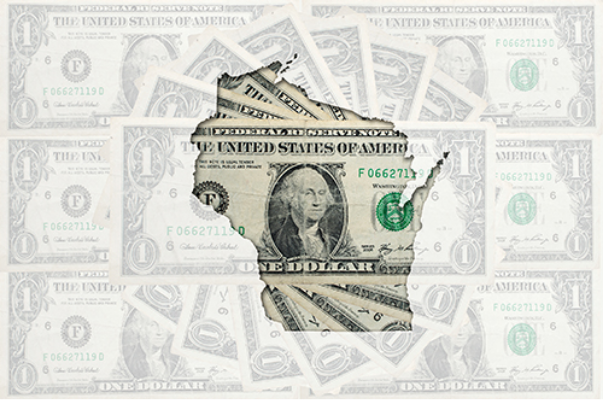Home Energy Rebates
Wisconsin was one of the first states in the country to roll out the Home Energy Rebates, which are separated into two programs: the Home Efficiency Rebates (HOMES) for whole home upgrades and the Home Electrification and Appliance Rebates (HEAR) for purchasing and installing new appliances. These rebate programs are still available for Wisconsinites and should continue to be until the funds allocated to our state – totaling $149 million – run out.
HOMES provides rebates of up to $10,000 for energy-saving, whole-home improvements. This program requires homeowners to receive an energy assessment, which helps determine what upgrades will be best for the home. Upgrades can include insulation, high efficiency heating and cooling appliances, and window replacements. Households of any income level can participate, but households with lower income levels and higher projected energy savings qualify for larger rebates. In some cases, households that have already made efficiency upgrades can retroactively receive HOMES rebates. To find out more, visit Focus on Energy’s website.
HEAR provides rebates of up to $14,000 to low- and moderate-income households for the purchase and installation of energy efficiency equipment and appliances. Qualifying appliances include heat pumps for heating and cooling, electric stoves and heat pump clothes dryers. These rebates are available for existing home appliance upgrades and for new home construction. Electric wiring, insulation, ventilation and air sealing upgrades in existing homes are also eligible for upgrades. Households must be below 150% of the area median income to qualify. HOMES and HEAR are available for both single-family homes and multi-family buildings. To find out more, visit Focus on Energy’s website.
Tax Credits
There are many federal tax credits available until 2032 for home and transportation upgrades such as renewable energy systems, energy efficiency upgrades and electric vehicle purchases. Credits exist for homeowners, renters, businesses and non-taxable entities such as places of worship. Tax credits can be claimed by filling out form 5695 (home upgrade tax credits) and form 8936 (vehicle upgrade tax credits).
Residential Clean Energy Tax Credits are available for Wisconsinites who install renewable energy systems on their property. This credit equals 30% of the costs of new clean energy systems such as solar panels, geothermal heat pumps and battery storage. In 2023, over 7,000 households in Wisconsin benefited from this program. Find out more here.
Energy Efficient Home Improvement Credits are available for certain energy efficiency home upgrades. This credit equals 30% of the cost of upgrades such as door and window replacements; insulation and air sealing; certain energy efficient heating air conditioners, boilers, furnaces and water heaters; heat pumps; and energy audits. In 2023, more than 60,000 households in Wisconsin benefited from this program. Find out more here.
New Clean Vehicle Credits are available for anyone under a certain income level who purchases qualified plug-in EV or fuel cell electric vehicles. The credits are up to $7,500 and the credit amount depends on vehicle battery capacity and critical mineral requirements. In 2023, over 3,000 Wisconsinites benefited from this program and received an average credit of $6,767. Find out more about the tax credits here, and search for qualifying vehicles here. A similar credit exists for the purchase of used clean vehicles.
There are also tax credits available for businesses and a program for non-taxable entities to claim tax credits for clean energy and electric vehicle tax credits called Direct Pay.
While the future of certain federal funding is uncertain, the benefit of currently available programs for Wisconsinites is not. Check out our federal funding webpage to stay updated about rebates and credits available to Wisconsinites.

